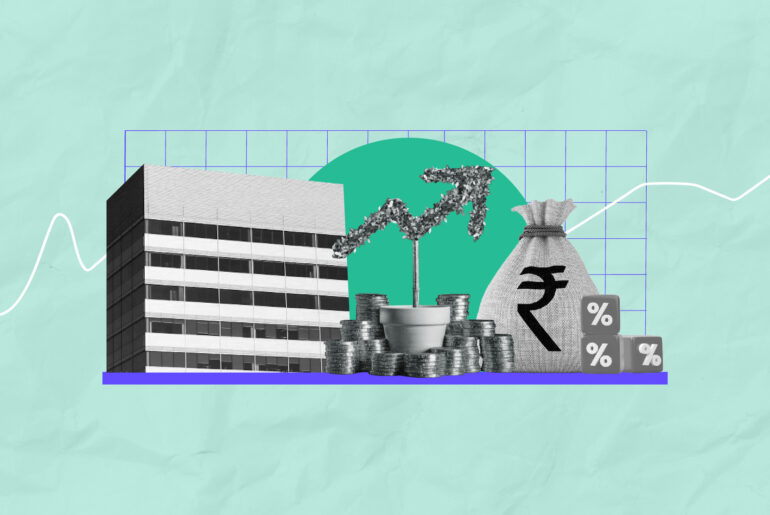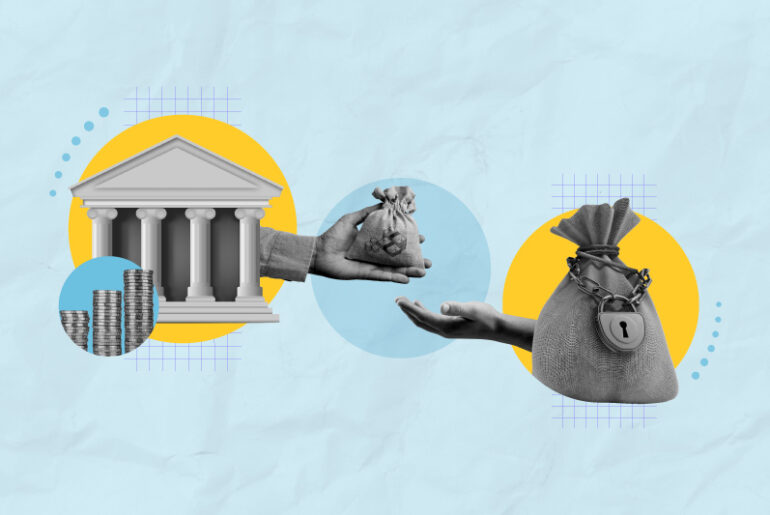Last Updated on May 24, 2022 by Anjali Chourasiya
Individuals draw loans for various purposes. Some may need a helping hand for a wedding; others may need loans for business, while students may need to draw loans for higher studies. Whatever be the reason, most people draw a loan or even multiple loans at some point in their lives.
But the real issue arises when the borrowers are unable to repay their debts. And if an individual has too many debts obligations, they could derail their finances real quick and also be paying increased interest. So, if you are juggling several loans and repayment deadlines, you may want to consider what is called consolidation of your debts. Let us see how this option works.
Table of Contents
What is debt consolidation?
Debt consolidation is a technique where you take out a single loan to cover all other loans you have availed. This will combine all your loans into a single liability, making it easier to track the repayments by narrowing down your focus.
You can approach any financial institution, bank, or even a private lender for this purpose. The process will be hassle-free if you have a good credit history. If you wish to consolidate debt from different credit cards, your credit card company can be a viable starting point.
The consolidation loans usually come with better payment options. This can be in terms of lower interest rates or manageable repayment durations. Make sure you ask your loan provider about all such details before selecting the option you want to go ahead with.
5 mistakes to avoid when consolidating your debt
The debt consolidation task is pretty straightforward. That being said, there is always a chance that one may make some mistake that might become a pain point. Let us get familiar with some possible slips so you can avoid them at all costs.
Mistake 1: Not analysing the cause of piling debt
Debt consolidation is merely a tool that aids your process of managing debt. However, it is not the ultimate solution for getting out of a debt trap. You must reflect upon what got you there in the first place.
Your financial habits lie at the root of your piling debt. Some self-introspection is necessary to get out of the trap. Analyse your credit card statements and other financial liabilities. Notice where you spent your income. Question all unnecessary expenditure. Understanding the cause will help you make better use of debt consolidation loans and stop you from falling into a deeper trap.
Mistake 2: Not exploring all options and rushing the decision
Debt consolidation can be done in many ways, and you must patiently consider all methods available. Debt consolidation brings all your outstanding balances under one loan option. So, if you have multiple pending EMIs and high-interest repayments, you can consider this option.
With this, you can manage repayment by tracking just one source. One thing to keep in mind is to check for a lower interest rate. The goal is not just easy but also cheaper repayment.
Another method is transferring your credit card dues to a single card. Choose a card with either zero or low interest. It will make the repayment easier and also reduce the interest charged. The freed-up credit limit can lure you back to maxing out your card. Make sure not to fall for that.
Mistake 3: Not analysing your financial situation
Remaining oblivious to your financial status is not the right solution. In fact, it can only worsen your situation further. Piling debt can affect your decision-making and also derail your finances. Any option that gives you some relief can be very lucrative. However, rushing the decision can be detrimental. Before taking a final call, make sure you have your action plan prepared.
Achieving a good credit score can help you get a headstart. While this may seem like a difficult thing to attain, there are many quick ways to improve your score. Therefore, holistically analyse your situation and only then proceed to consolidate your debt.
Mistake 4: Not opting for a short tenure
Allowing repayment over a longer duration may tempt you, but it is advised to stay clear of it. By logic, if you divide the amount you have to pay by longer duration, you pay a lower amount in every instalment. This may look like an attractive offer because it is easier to shell out less money every month. However, if you look at the bigger picture, in the end, you are paying a higher interest rate, which is arguably the most important factor to be considered not only when consolidating debt but also when normally availing them.
Ask your lender for the various options available. If you have a steady income and can afford high monthly payments, go for the shortest duration possible. This will help you save a lot on interest payments. Not just that, you can also free yourself from the debt burden quickly.
Mistake 5: Not creating a repayment plan
Consolidating your debt is only the first step. While it helps in reducing your stress levels and narrows down the focus point, it does not vanish the debt. You still have to make the repayments. To effectively manage this, you may want to be prepared with a repayment plan. Segregate your income so that you have enough to spend on necessities and also for a monthly instalment.
You can also direct any extra cash that you receive towards repayment. This can ease your debt load to some extent. But again, you’d need to control your urge to spend. Preparing a budget and sticking to it is extremely important. Take into account how much you need for everyday expenses. Cut out all unnecessary expenditures. Do not splurge and focus on becoming debt-free first.
One thing that can make the task easier is automating your repayments. You can give your bank the instructions to deduct a set amount at predetermined intervals. This way, you won’t need to worry about forgetting to put out the instalment.
Conclusion
The above-mentioned mistakes are easy to avoid. All you need is self-discipline and a check on your spendings. Remember to choose the debt consolidation option with the lowest interest rate and a reasonable timeline. Ensure you don’t skip any instalments. Don’t fall for more credit payments. Some restrictions and a lot of self-control can bring you closer to living debt-free.







